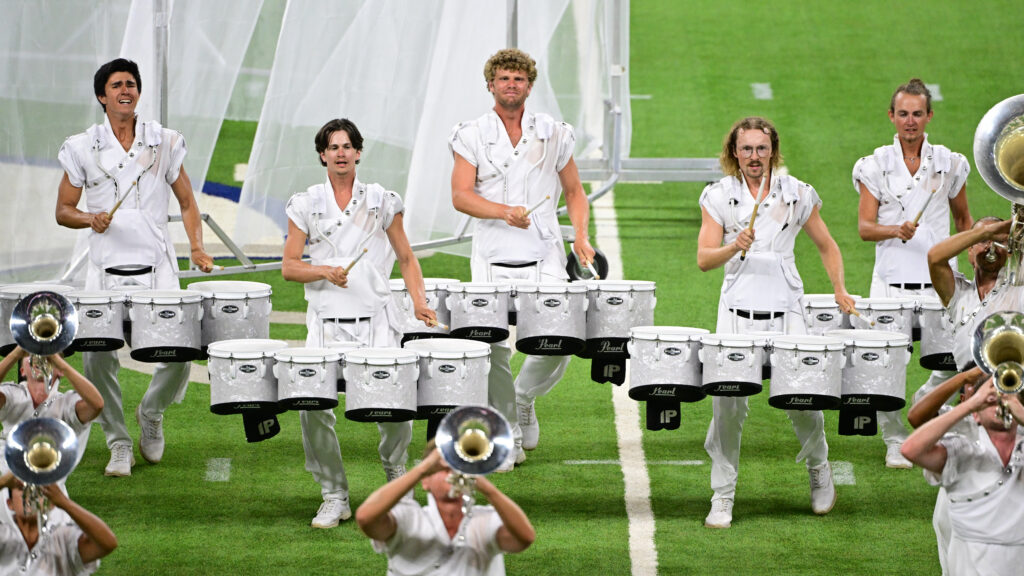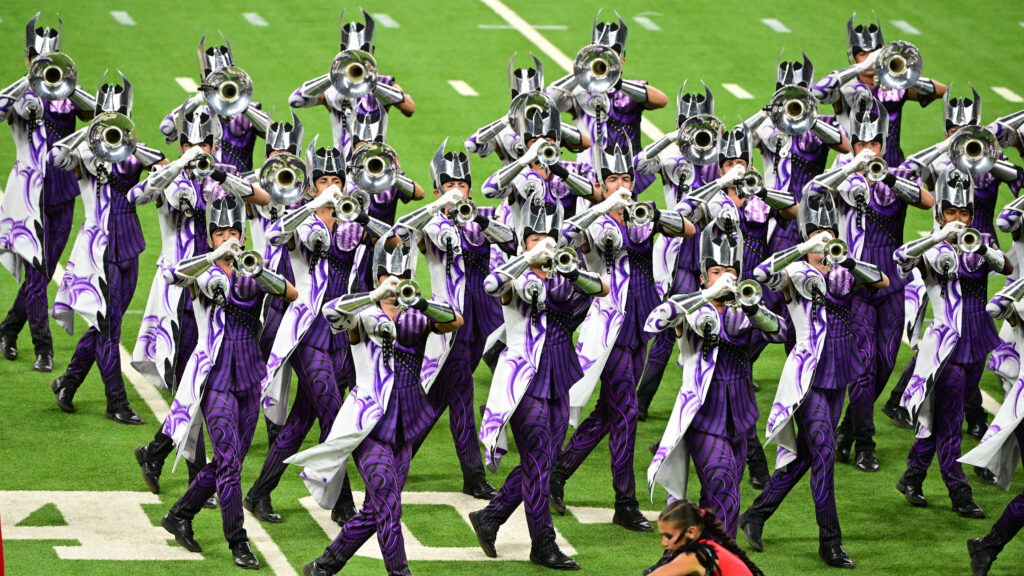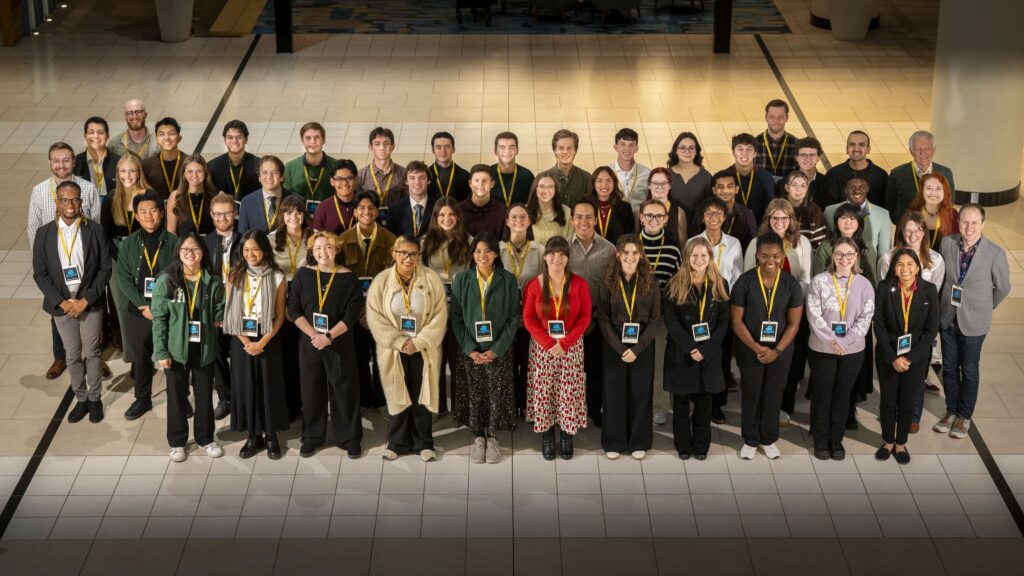
The Crossmen first became a DCI World Championship finalist in 1977 finishing in 11th place, but in 1978, people really began to notice the corps. A new uniform look with crossed sashes and extremely long capes—even on the color guard members—and a brash sound helped put this group on the radar of many fans. It was those capes that were both the corps’ new image and also generated some controversy. A number of corps fans thought the long capes covered up marching technique and interval errors when judges were looking at the backs of the members. Even the guard members wore the same capes, which practically touched the field. So the guard equipment wouldn’t get caught in the expansive fabric, their rifle and flag work had to be written to be primarily to the front of the body or way out to the side. The percussion section, looking for a visual identity, painted their faces white with a red Maltese cross that would become the corps’ logo. This resembled the skull and crossbones look that became associated with the corps’ mascot, Bones. The show began with the first movement of Patrick Williams’ “Rhapsody for Jazz Band and Orchestra.” Williams, better known for his film and television credits, was popular at the time for writing the theme songs to both “The Mary Tyler Moore Show” and “The Bob Newhart Show,” each of which had recently ended a successful run on network television. After a sock-you-in-the-face opening fanfare, the brass players lying back on a long sustained climactic chord, rotated a 40-yard wide series of straight-line files into position with the color guard while facing backfield. The long capes made it appear as if the corps members were moving on roller skates. This opening tune demonstrated the corps’ new intense demeanor and was followed by the work’s second movement, a ballad. The color guard utilized the capes almost as if they were flags, alternating between the maroon outside and white inside. The breather for the horns didn’t last long, though, as the piece quickly led to another huge fanfare statement and the brief short finale statement.
1978 Crossmen performance excerpt.
George Harrison’s “Something” started with a screeching soprano solo. With the rest of the brass players and drummers kneeling, the cymbal players laid down on their backs so the snare drummers could play a ride beat. The color guard members utilized their capes almost exclusively until near the end of the piece, tossing and swirling the fabric to make them appear as large as possible. “Let’s Here It For Me,” from “Funny Lady,” brought back from the corps’ 1977 production, showcased a full-out screaming Broadway attitude much in contrast to the first part of the show. The drum line then played a solo of “Tico Tico.” Looking at the size of the trio tenor drums now, it’s a wonder anyone was able to carry them without back supports. When it was all over, it was the percussion section that was the corps’ highest scoring section, in a three-way tie for sixth. After the general carefree stylistic brightness of the preceding three pieces, it was time to bookend the show with another serious work from the symphonic realm. Alfred Reed’s “Russian Christmas Music” also returned from 1977, with some minor adjustments. Facing backfield, the famed chorale slowly built up steam until the brass section turned around and blasted a big push toward the stands. While the corps was on the radar of many fans throughout the season, after the 1978 World Championship Finals, the storm that rolled into 9th place was on everyone’s minds. This week only, you can save on 1978 World Championship Audio and Video Performance Downloads on the DCI Fan Network. Buy the 1978 Crossmen Video Performance Download. (Available this week only for $3.99. Regular price: $4.99.) Buy the Audio Performance Download bundle of all 12 Finalists from 1978. (Available this week only for $15.99. Regular price: $19.99.) Offer ends Monday, Dec. 26 at 8:30 a.m. ET.

Michael Boo was a member of the Cavaliers from 1975-1977. He has written about the drum corps activity for more than a quarter century and serves as a staff writer for various Drum Corps International projects. Boo has written for numerous other publications and has published an honors-winning book on the history of figure skating. As an accomplished composer, Boo holds a bachelor's degree in music education and a master's degree in music theory and composition. He resides in Chesterton, Ind.





